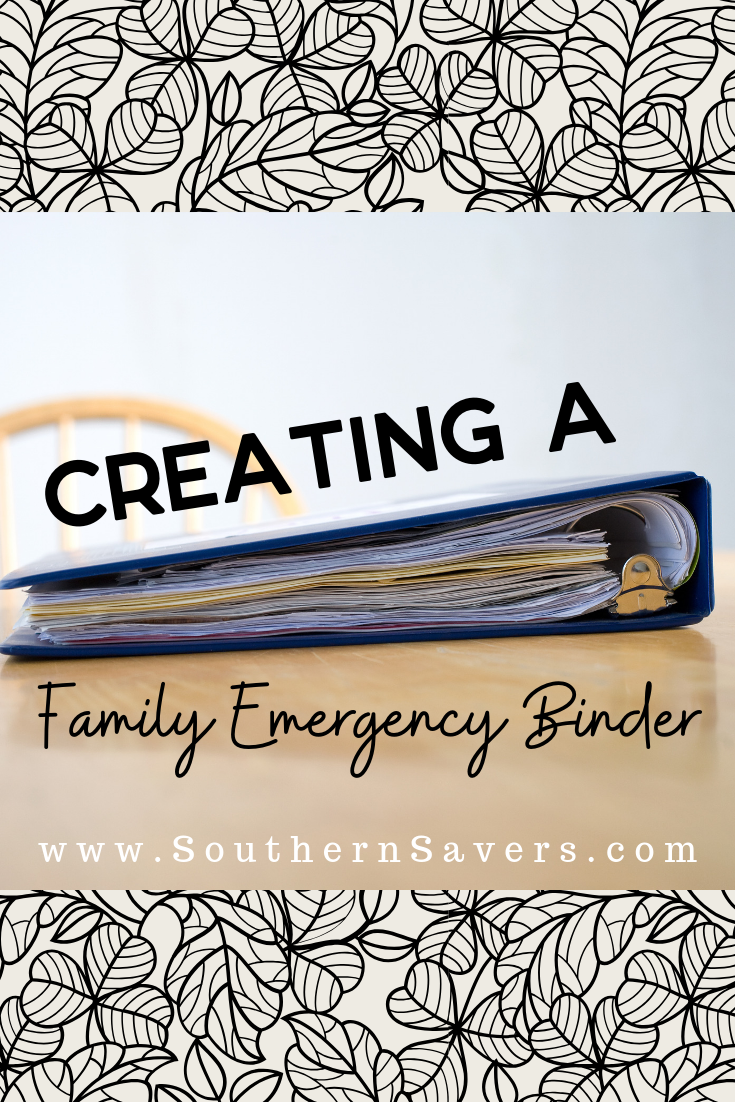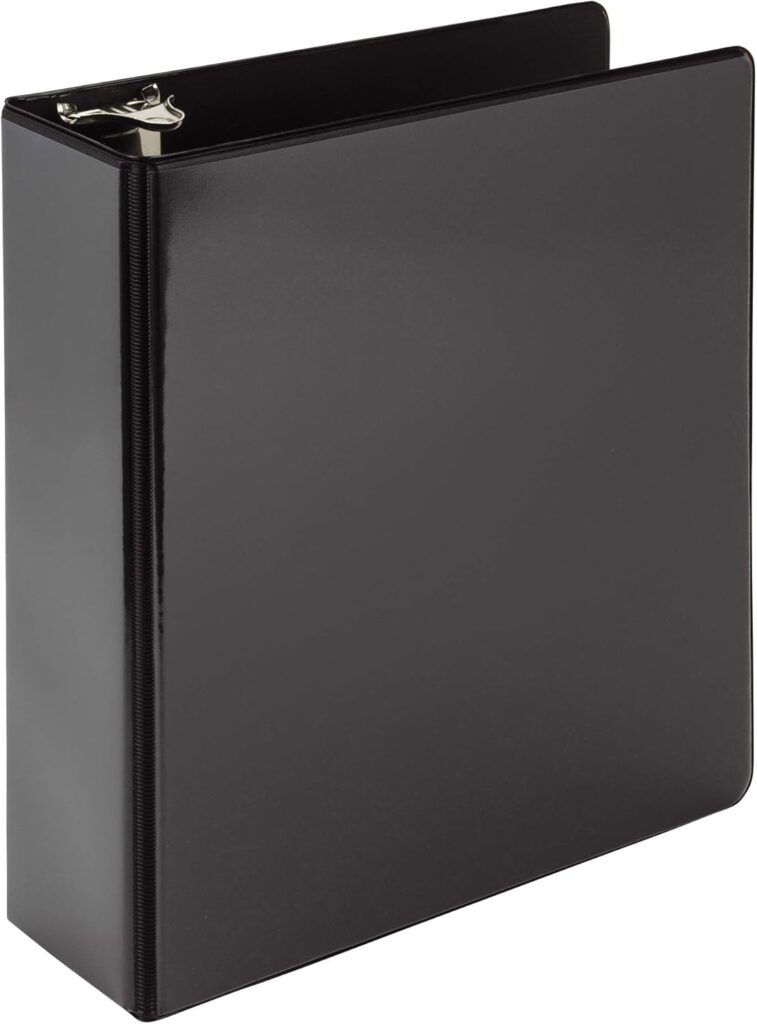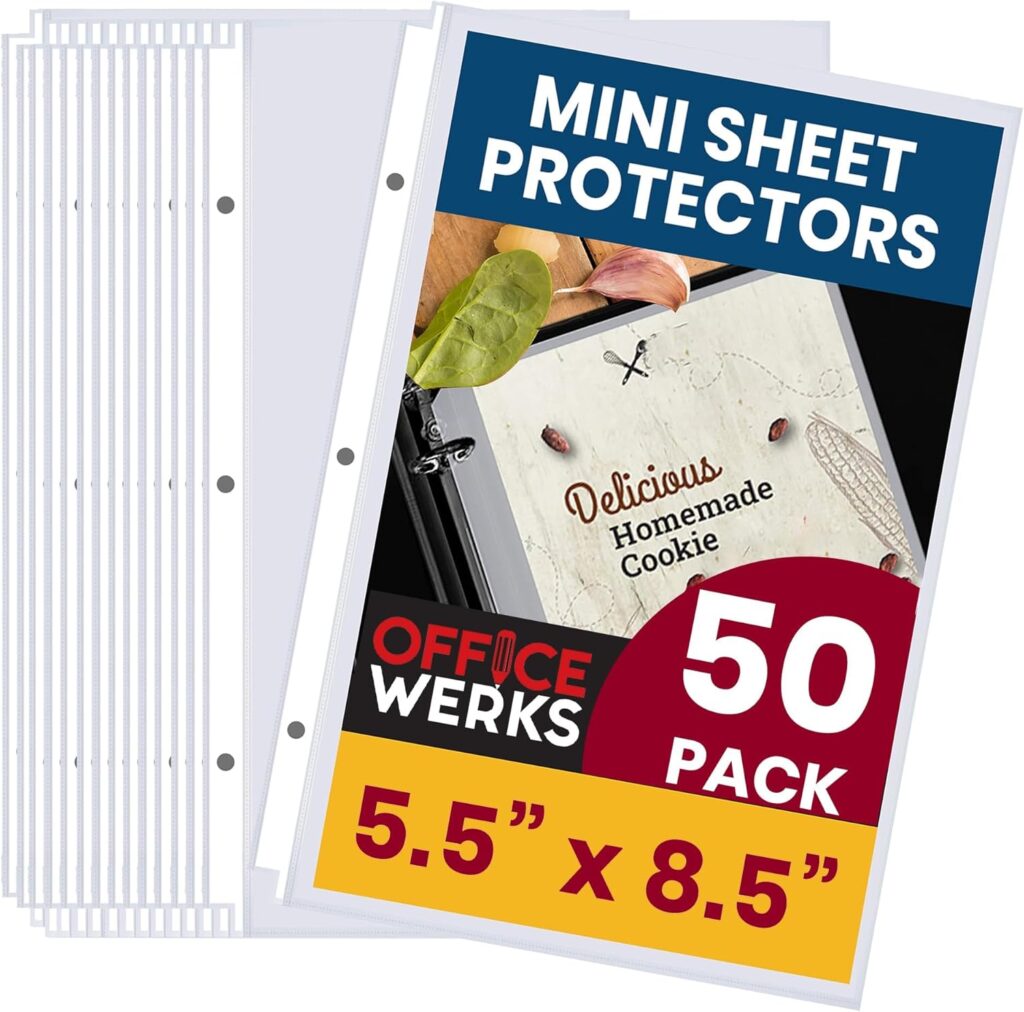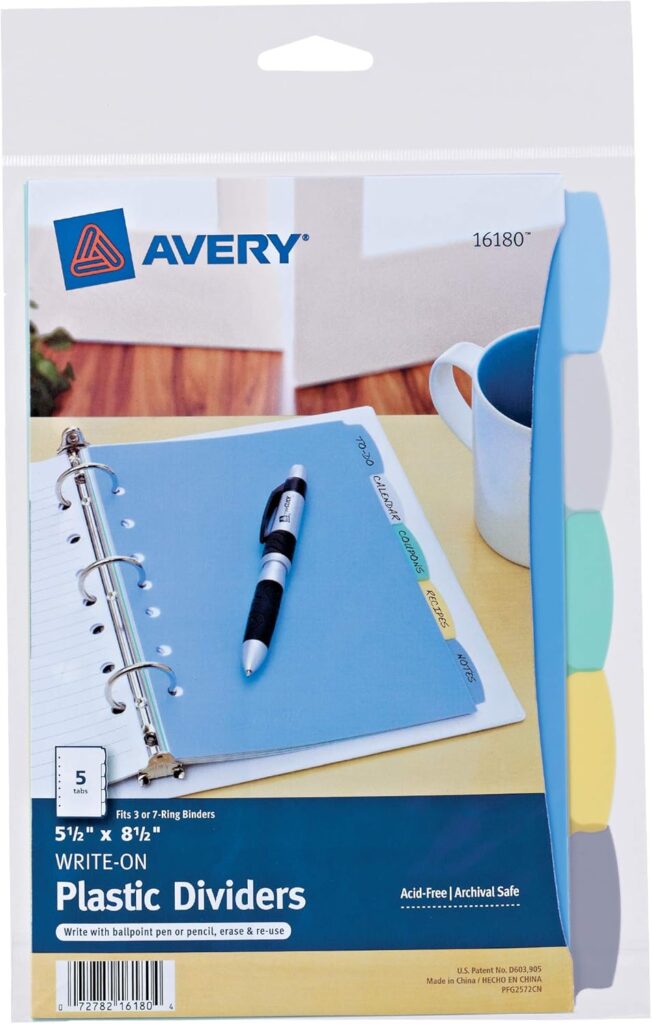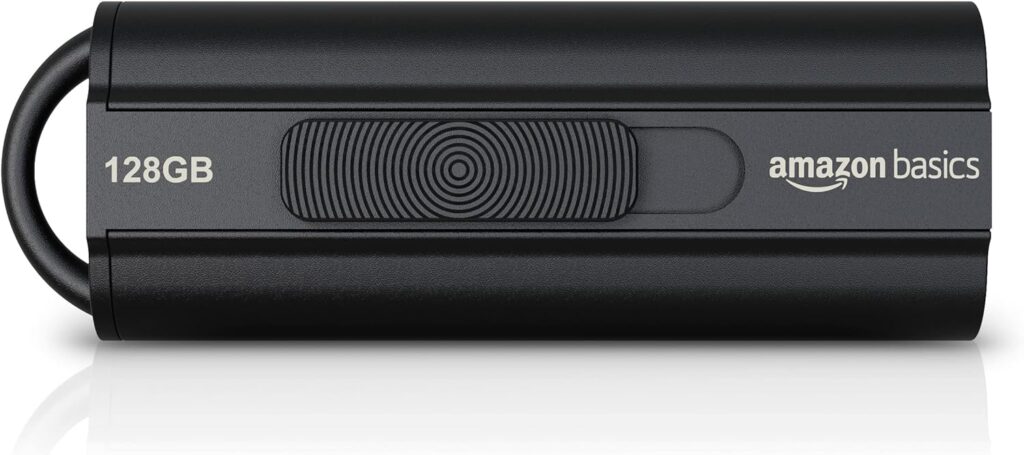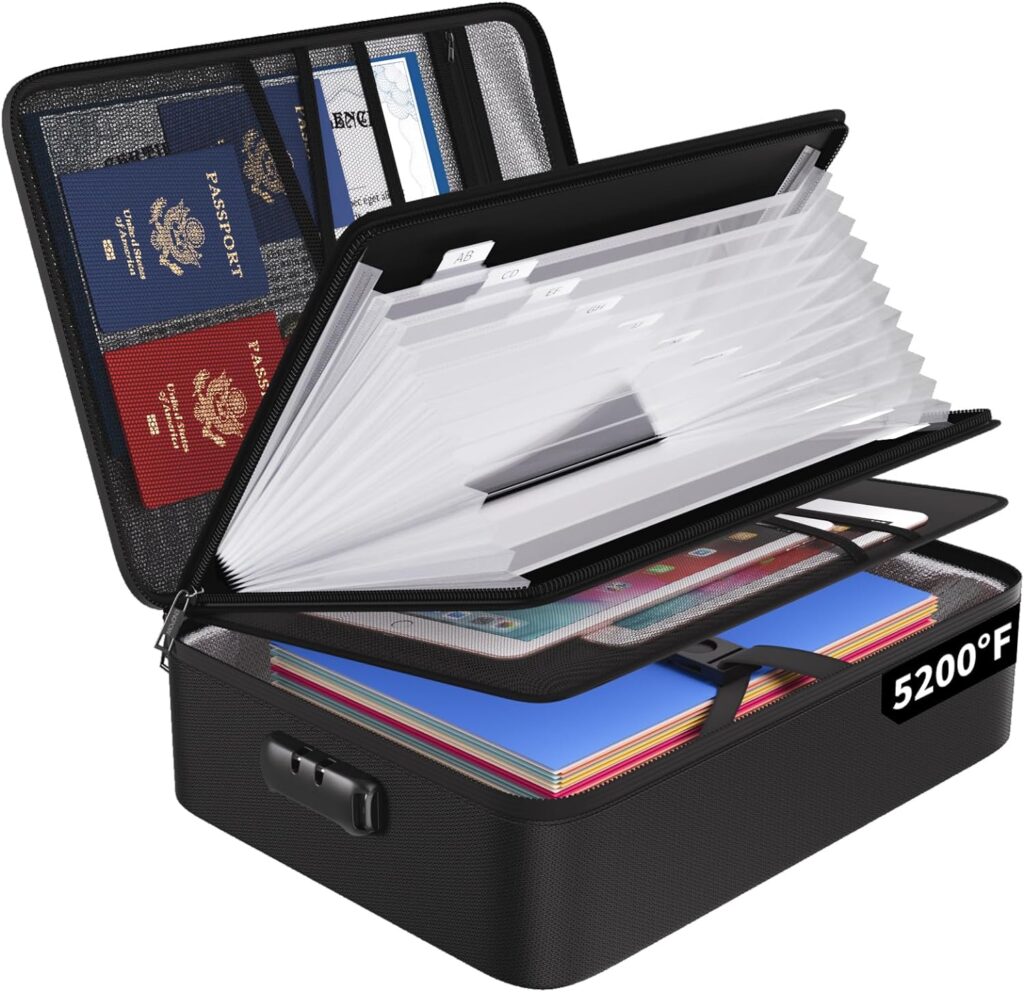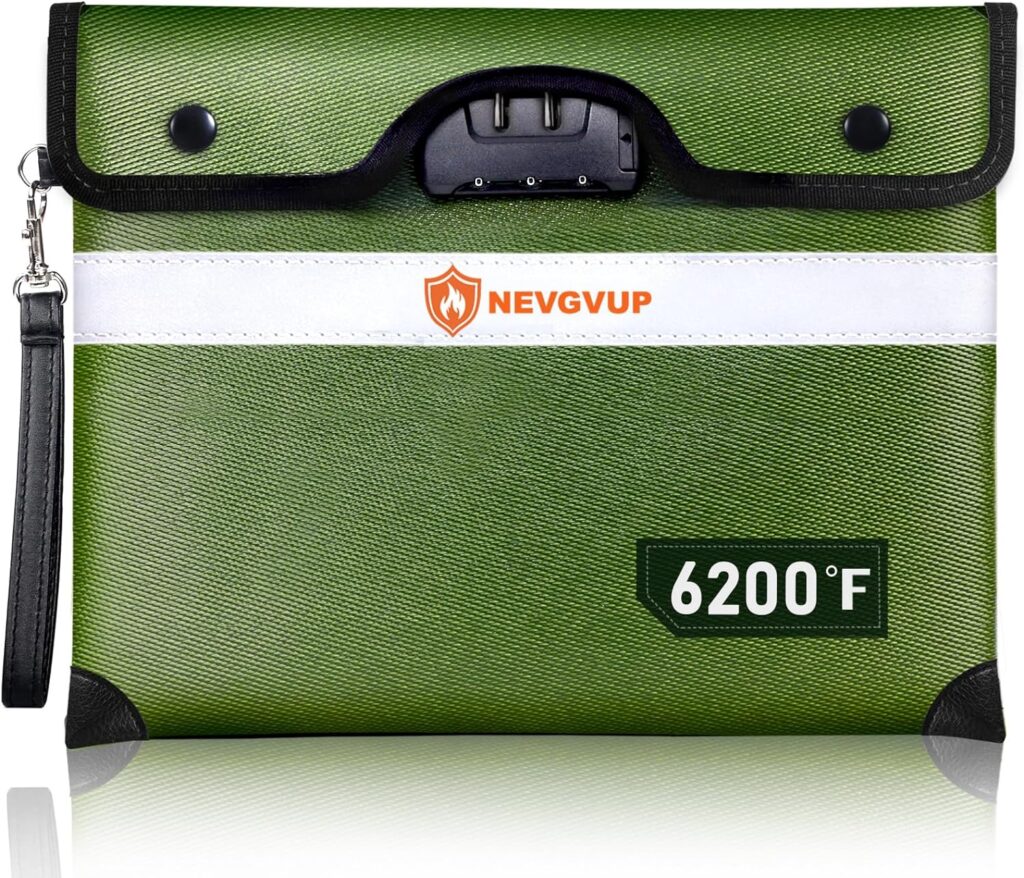This post may contain affiliate links. Read our disclosure here.
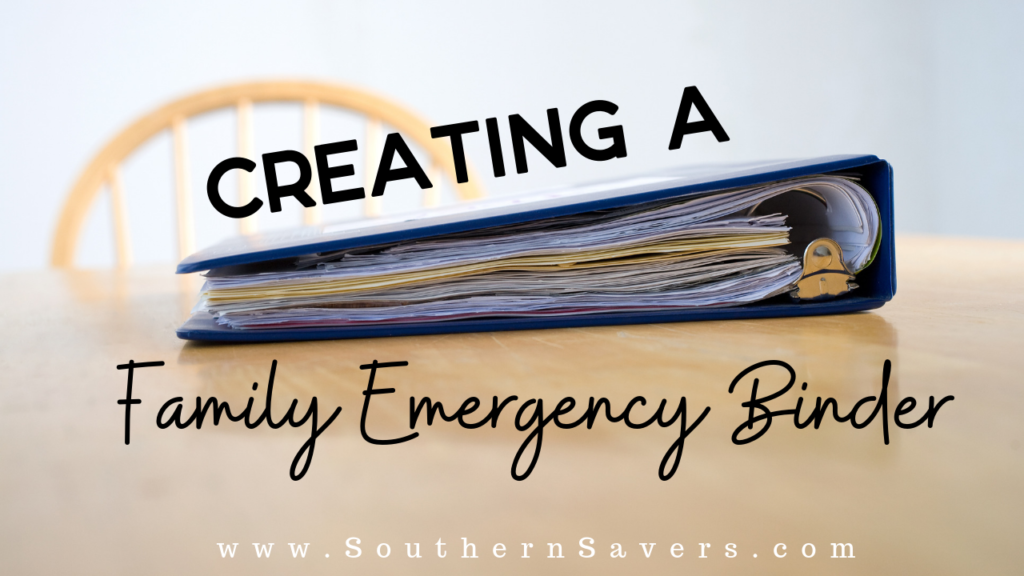
Over the last several years, we have watched numerous friends and family members deal with unexpected death. Something that has stood out to me in the midst of them grieving is that one added burden can be dealing with all of the paperwork and financial issues, especially if the information needed to address this is not easy to find. While it’s not fun to think about, consider how your own passing or even just a long-term medical issue could be even harder on your family if they have to search for important information. Creating a family emergency binder will ease that burden if the worst ever does happen.
Additionally, September is National Preparedness Month! I like to set a reminder each year to look through our binder and make sure all the information is updated.
Note: This binder is also something good to have on hand in the case of a natural disaster. If for some reason you ever need to leave your home quickly and unexpectedly, taking this information will make things much easier on the back end.
Creating a Family Emergency Binder
Supplies
Here are the supplies I’ve used to create our family emergency binder, along with some other suggestions.
I like this smaller binder because it’s not as bulky. If you fold documents in half, things fit perfectly.
Instead of hole punching important documents, I prefer to put them inside individual sheet protectors. This also lets you keep things like social security cards all in one pocket.
These divider tabs can be helpful if you have many different documents. You could sort by individual, or by category (house, car, etc.).
While I give an idea below about storing important documents online, a thumb drive is helpful if for some reason you don’t have access to the Internet. As long as you are somewhere with a computer, you’ll be able to see the documents.
Instead of the regular binder, you can also get a fireproof and water resistant document box with accordion-style organizers. This kills two birds with one stone and lets you keep everything organized as well as protect the contents.
I use a regular binder for ours but I do keep it in a fireproof and water resistant bag. I like this bag because it is bigger and can hold a few more things. In a true emergency I could just grab the bag and go, but if I had time to include a few more important items in the bag at the last minute, there would be plenty of room.
Content to Include
Then you’ll want to start to locate important documents and put originals or copies in the binder. Here’s a list of the types of documents you should include:
Wills & Powers of Attorney / Medical Directives
Burial Plot Deeds (if you have them)
Life Insurance Policies
Birth & Marriage Certificates for every family member
Bank Account Information (including passwords)
Pet Information
Other Property Information (House, Car, etc.)
Social Security Cards
Passports
Important Contact Information
Immunization Records
Prescription Lists
When trying to decide what to put in the binder, think about the information that you know how to access but that your spouse or other family members wouldn’t know how to. I’m embarrassed to admit that because I handle a lot of the financial things in our home, my husband didn’t have the password to access our online mortgage account! While that kind of information wouldn’t be impossible to find if something were to happen me, it would probably be a pain in the neck.
It would also be good to scan these important documents and store them digitally somewhere you can easily access them. Dropbox is perfect because you can access it from any device anywhere! You can also use a thumb drive like I listed above.
The last tip is to keep it updated! When something changes—you have an additional child, your change bank accounts, or you get a new passport—you’ll need to make sure you update the binder.
Do you have a family emergency binder? Any tips that you have that I didn’t share?
